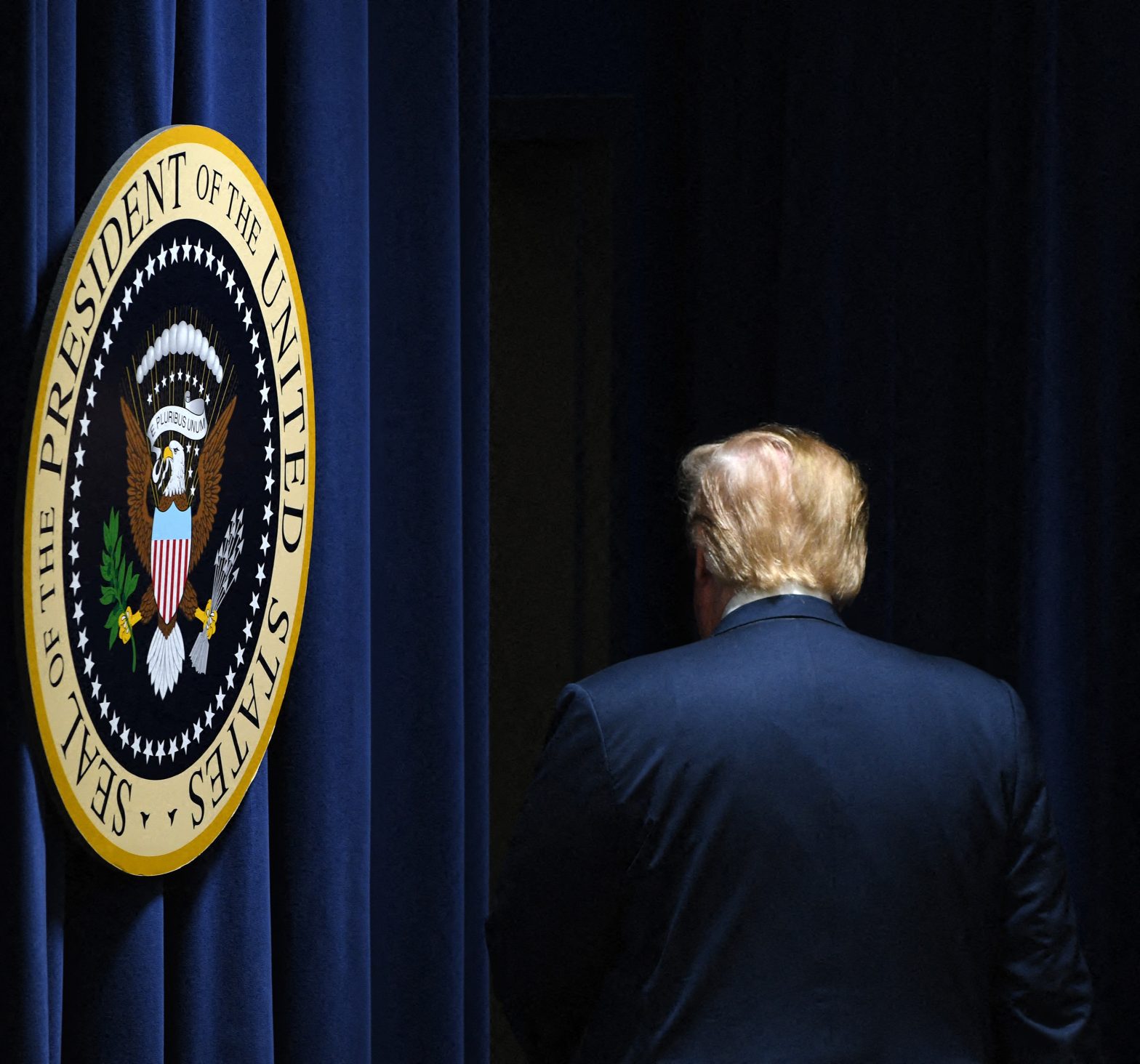Questions About Foreign Dealings Still Unanswered as Trump Leaves Office
COMMENTARY

We now know at least three things about the Trump administration that raise unanswered questions as the president leaves office.
First, that he had cutouts — associates and loyalists — stumbling around the world, wheeling and dealing and using Trump’s position to try to obtain favors to benefit Trump personally.
Second, that Trump adopted strange foreign policy positions that ultimately stoked conflict rather than ending America’s involvement in forever wars.
Third, that special counsel Robert Mueller’s investigation raised counterintelligence questions for which we still don’t have answers.
There is proof that Trump has used cutouts such as Rudy Giuliani, his personal attorney and the former mayor of New York City, to communicate quid pro quos to foreign officials. Trump had Giuliani serve as a middleman in an attempt to convince Ukrainian officials to dig up dirt on Trump’s opponent in the presidential race, Joe Biden, and his businessman son, Hunter, under implicit threat of withholding congressionally approved defense assistance. That attempted use of leverage underpinned Trump’s first impeachment.
How many others like Giuliani are there? Who have they been shaking down? And what would their targets have wanted from Trump in return?
Such activities go a long way in explaining some of the strange foreign policy moves that the Trump administration has made. The main beneficiary of Trump’s foreign policy wasn’t America. For that to have been the case, Trump would have extracted the U.S. from all involvement in the Middle East, period. Instead, he spent his entire term intervening in regional Middle Eastern affairs — all to the benefit of Saudi Arabia and Israel. Trump’s “peace deal” process, spearheaded by his wheeler-dealer son-in-law Jared Kushner, consisted of forming a schoolyard gang of Persian Gulf nations to bully Iran (although those countries had already been quietly cooperating with one another for quite a while). What benefit did the U.S. get from that charade?
Trump’s first foreign trip as president was to Saudi Arabia. He treated the horrific murder of Washington Post columnist and U.S. resident Jamal Khashoggi inside the Saudi consulate in Istanbul as a triviality — even when Trump’s own CIA director held Saudi Crown Prince Mohammed bin Salman responsible.
Trump approved the drone assassination of Iranian general Qassem Soleimani inside Iraq at a time when the general’s Iranian proxies were busy liquidating jihadists who served the interests of Israel and Saudi Arabia against pro-Iranian countries in the region such as Iraq and Syria. Trump made a big deal of moving the U.S. Embassy in Israel from Tel Aviv to Jerusalem, inexplicably pandering to the whims of Israeli politicians with a move that the average American couldn’t care less about.
There were also strange events during the Trump era regarding Venezuela. Giuliani appeared on the radar there, too. A December article in the Washington Post detailed Giuliani’s efforts to insert himself between Trump and Venezuelan President Nicolas Maduro, a perennial target of U.S. regime change efforts. Mercenaries with ties to Trump’s personal security detail attempted to stage a coup d’état against Maduro in the spring of 2020 — the ill-fated “Operation Gideon.” Some of those operatives now sit in a Venezuelan prison.
It makes you wonder: How many other people with Trump connections were freelancing in foreign affairs in Latin America?
War-torn Libya has also been a haven for mercenaries seeking to take advantage of chaos in exchange for profit. Trump’s recent interest in supporting a putsch by warlord Khalifa Haftar, a former CIA asset now backed by the Saudis and Emiratis, is all the more interesting when considering Haftar’s reported penchant for using Western mercenaries. Haftar’s forces have been accused of torture and extrajudicial executions.
All of these foreign interventions have one thing in common: They effectively privatize American defense and foreign policy to the potential benefit of the president and his cronies.
Trump critics spent much of his term obsessing over Trump’s alleged collusion with Russia, but the Persian Gulf nations are where the real money and power lie. These countries aren’t autonomous — they desperately need America’s support to help their plans and ambitions to come to fruition. There were hints in the Mueller report that the president may have been compromised by such dealings. And as the curtain falls on the Trump presidency, we still need to know definitively whether that was indeed the case.
©2021 Tribune Content Agency, LLC























